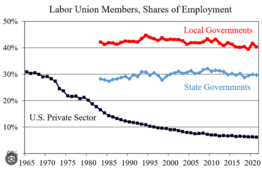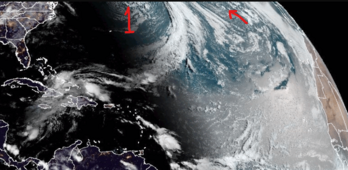China praising is getting ridiculous, but it doesn't surprise one bit as China is the technocratic model that the establishment wants to install worldwide.
China’s annual greenhouse gas emissions have soared over the past 20 years, dwarfing those of the U.S. But according to our progressive federal bureaucrats, America’s cumulative historical emission…

wattsupwiththat.com
By Paul Homewood Despite the absurd Ambrose Evans-Pritchard’s repeated assertions over the years that China is cutting back on its reliance on coal, its coal output continues to hit record h…

notalotofpeopleknowthat.wordpress.com
The International Rules-Based Order is under threat and the balance of power is in flux. This geopolitical shift is not being led by nation states but rather by a global network of stakeholders seeking to create global technocracy.

unlimitedhangout.com
China: The World’s First Technate
Technocracy is a system of dictatorial rule
based upon the allocation of resources. In 1938, Technocrat Magazine described it as follows:
“Technocracy is the science of social engineering, the scientific operation of the entire social mechanism to produce and distribute goods and services to the entire population.”
Rather like feudalism, resource distribution is controlled by a centralised authority, who mete out access to resources dependent upon the citizen’s behaviour. This is the preferred “social credit” method of population control in China. An increasing number of China’s citizens need a good social credit score in order to access resources and society.
The whole system is administered by central planners within a subordinate policy body to the State Council called the
National Development and Reform Commission (NDRC). They oversee a data mining, collection and analysis operation on an immense scale.
China’s National People’s Congress Photo:
Xinhua
Without any democratic oversight, technocracy in China stipulates that the people trust the edicts of the technocrats. They are required to believe, or at least publicly state, that decisions are taken in the interest of the general good. If they don’t comply the Technate can use its surveillance systems to identify offenders and punish them for their selfish behaviour.
In its 2014 document
Planning A Social Credit System, the People’s Republic of China (PRC) spoke of their intention to “construct a social credit environment of honesty, self-discipline, trustworthiness, and mutual trust.” They announced:
“Our country is currently in a key period of economic and social transformation. Stakeholder entities are more diversified [. . .] the forms of social organization and management are undergoing deep changes. Comprehensively advancing the establishment of a social credit system is an effective method of strengthening societal creditworthiness, promoting mutual trust in society, and reducing social contradictions, and it is an urgent requirement for strengthening and innovating in social governance. [. . .] The establishment of a social credit system is an important foundation for comprehensively implementing the scientific viewpoint of development. [. . .] Accelerating and advancing the establishment of the social credit system is an important precondition for promoting the optimized allocation of resources.”
This is the epitome of technocracy. It is a monoculture where all are subservient to the technocratic state.
There are two arms to the social credit system in China. Both individual citizens and corporations are given a rating based upon the aggregation and analysis of the data collected from their lives and business practices.
Approximately 80% of China’s provinces have rolled out
some form of the social credit system. While still in development, individual surveillance and control systems are most pervasive in the cities. People can either be placed on a “blacklist,”
limiting their freedoms, or a “redlist” permitting them to engage in society in a manner deemed appropriate by the Technate. Punishments include
denial of access to public transport, refused payments, public shaming or restricted employment opportunities.
Nationally, the focus has been on constructing the
Corporate Social Credit System (CSCS). Millions of businesses in China are required to demonstrate their commitment to the general good, as
defined by the Technate. As long as they do, they will be allowed to prosper. If they don’t obey, they won’t.
For numerous reasons, explored by Prof. Liu Yongmou in the
Benefits of Technocracy in China, the Chinese political system lent itself well to the creation of the world’s first Technate:
“In China today, there exists a more favourable attitude toward technocracy than is found elsewhere. [. . .] Insofar as it is scientism applied to politics, the Chinese tend to have a positive attitude toward technocracy. [. . .] Technocracy also fits with the Chinese tradition of elite politics and the ideal, to reference a Confucian phrase, of ‘exalting the virtuous and the capable.’ [. . .] knowledge was more important than the representation of the interests of those being governed. [. . .] Against the background of the Chinese heritage of a long feudal culture, technocracy is a better way to confront social problems than authoritarian politics divorced from technical expertise.”
The WEF, the Trilateral Commission and other G3P think-tanks have encouraged the development needed for the PRC State Council’s NDRC to construct the burgeoning Technate. Foreign investment and an infusion of technology, from the current leading nations of the existing IRBO, has brought China to a position where it will provide the economic, political and cultural impetus for a new world order.
Technocracy, as piloted in China, is now being rolled out globally. Individual sovereignty and freedoms, the claimed moral basis for the current IRBO, are being replaced by a commitment to efficiency and resource management in the interests of the “general good.” In the West, we know this as “
sustainable development.”
Such a system is perfect for those who want to wield supreme autocratic power, which is precisely why the G3P have long wished to install technocracy globally. It is the reason why they have assisted the construction of a Technate in China. The new IRBO will be led by the technocrat and they will serve the Global Public-Private Partnership.

 theconversation.com
theconversation.com










